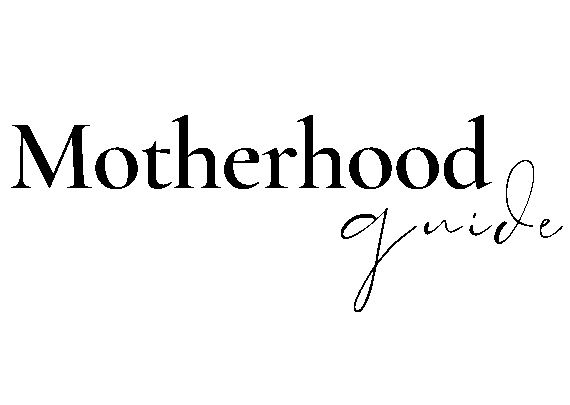Using NLP to Prepare Your Child for University

How Moms Can Use Neurolinguistic Programming (NLP) to Help Their Kids Prepare for University Life
As a mom, watching your child prepare to leave home for university is a bittersweet experience. On one hand, you’re proud of the young adult they’ve become. On the other, you’re faced with the emotional challenge of letting go. Pride in their accomplishments mingles with anxiety about their future. Remember, helping your child to be more prepared for a new step in their life, you will also do a massive favour to yourself dealing with worries that’ll come later on. Aside all traditional advises and support I’d encourage to look into some very powerful NLP techniques.
Neurolinguistic Programming (NLP) offers a set of powerful tools that can help you guide your child through this important transition, ensuring they step into their new life with confidence and excitement.
Neurolinguistic Programming, developed in the 1970s by Richard Bandler and John Grinder, is a psychological approach that explores the connection between neurological processes, language, and behavioral patterns learned through experience. It provides a set of tools designed to help understand and reshape thoughts and behaviors for positive life changes.
The move to university is a major life change that comes with both excitement and anxiety. According to a 2015 survey by the JED Foundation, 60% of first-year students reported feeling emotionally unprepared for university. By incorporating NLP strategies, we can work to improve these statistics and set our children up for success. As a mom, you can use NLP techniques to help your child navigate this transition smoothly, by boosting positive feelings, managing stress, and building your child’s confidence.
Ten Effective NLP Techniques for University Preparation
1. Creating Positive Associations
- Why It Works: Associating positive emotions with specific words or gestures can help your child feel more confident and excited about university.
- How to Use It: Every time you talk about university in a positive light, use a specific touch, like a tap on the shoulder, or a word, like “interesting” or “exciting”. Over time, this anchor will trigger those positive emotions whenever your child thinks about leaving home.
2. Reframing Challenges as Opportunities
- Why It Works: Reframing helps shift your child’s perspective, turning potential obstacles into exciting opportunities for their own growth.
- How to Use It: If your child often says, something like, “What if I don’t make any friends?” you can reframe it by saying, “This is a great chance to finally meet people with same interests.” By focusing on the positives, you help them see the excitement in the challenge.
3. Future Visualisation for Confidence’s Boost
- Why It Works: Visualising future success helps your child feel more prepared and reduces anxiety about the unknown.
- How to Use It: Encourage your child to imagine their first week at university. Ask them to describe what they see, hear, and feel. Guide them through visualising positive scenarios, like making friends or enjoying a class. Simply encourage your child to vividly imagine their first week at college going well. This mental rehearsal can boost confidence and reduce anxiety about the unknown. A study published in the Journal of Applied Psychology found that mental practice can be nearly as effective as physical practice in improving performance.
4. Language Patterns for Positive Expectations
- Why It Works: The language you use can shape your child’s expectations and reduce anxiety.
- How to Use It: Use language that suggests positive outcomes without creating pressure. Say things like, “Many students find that their first year is full of exciting new experiences,” or “I wonder what interesting things you’ll learn” This creates a positive framework for their expectations.
5. Meta-Model Questions to Challenge Fears
- Why It Works: Asking the right questions can help your child break down their fears and see them in a new light.
- How to Use It: If your child says, “I’m afraid I won’t be able to handle the workload,” reply with, “Can you think of a time when you handled something challenging?” This helps them to challenge their limiting beliefs and realise their own strengths.
6. Building Verbal and Nonverbal Expression
- Why It Works: Strong communication skills builds trust and self confidence, making it easier for your child to express their concerns. Encourage them to make calls to some government institutions, allow to handle complicated situations without you. Simple things like asking to make an order at the restaurant, or fill some forms will boost their confidence.
- How to Use It: Pay attention and help to improve your child’s tone of voice, body language, and speech patterns. When they express themselves better they feel understood, and are more likely to merge the group, participate in class.
7. Setting Well-Formed Outcomes
- Why It Works: Clear, achievable goals provide direction and purpose, reducing anxiety about the unknown.
- How to Use It: Help your child set specific, measurable, achievable, relevant, and time logic goals for their first year at university. This might include making a certain number of friends, joining clubs, or achieving certain grades. With clear goals, your child will feel more in control and less overwhelmed.
Empowering Our Children and Ourselves: The NLP Journey Together
By incorporating these NLP techniques into our daily conversations and interactions, we’re equipping our children with powerful tools to approach their challenges with confidence and a positive outlook. It’s natural for both them and us to feel a mix of emotions during this time, but these strategies can help our children manage their anxieties and see the exciting opportunities ahead.
As we support our children, it’s equally important to take care of ourselves to soften the empty nest syndrome. Consider applying some of these NLP techniques to manage your own feelings about this life change. With patience, love, and these helpful strategies, we can make this transition a positive experience for the whole family.
Want to share your Motherhood experience? Contact me today!











